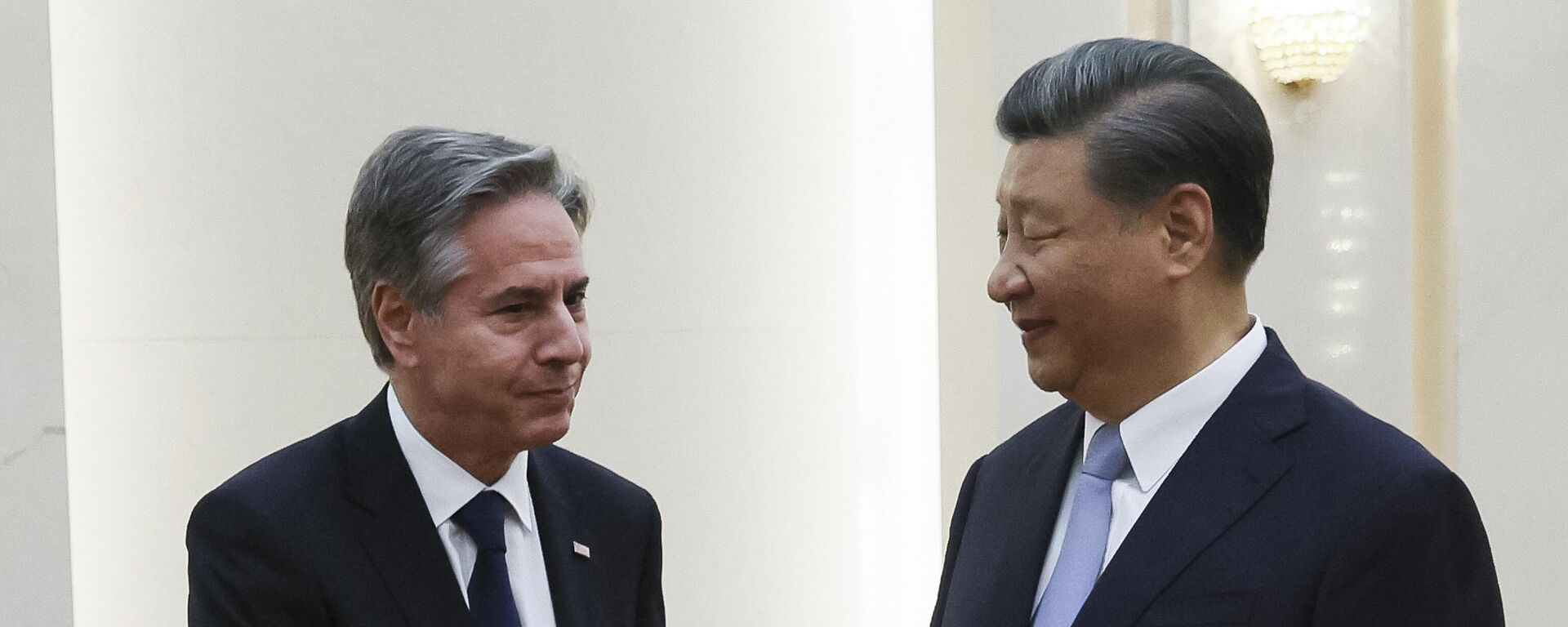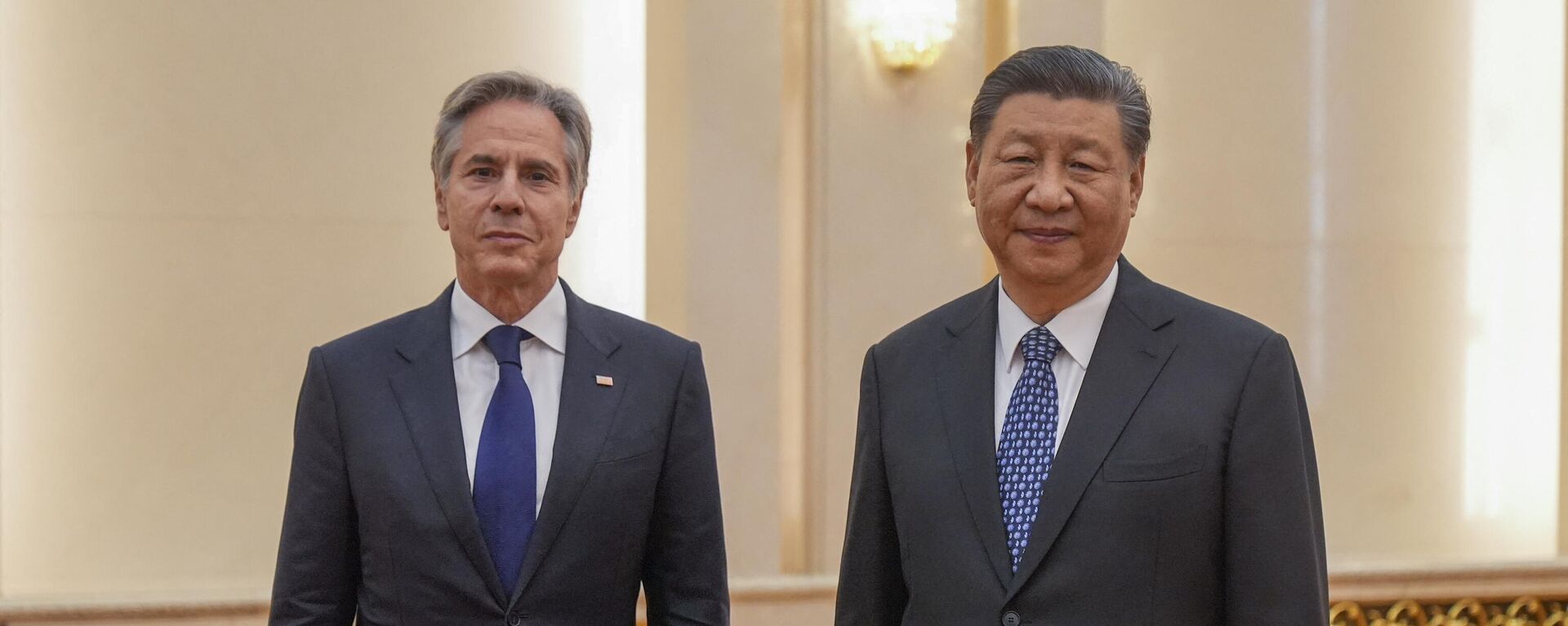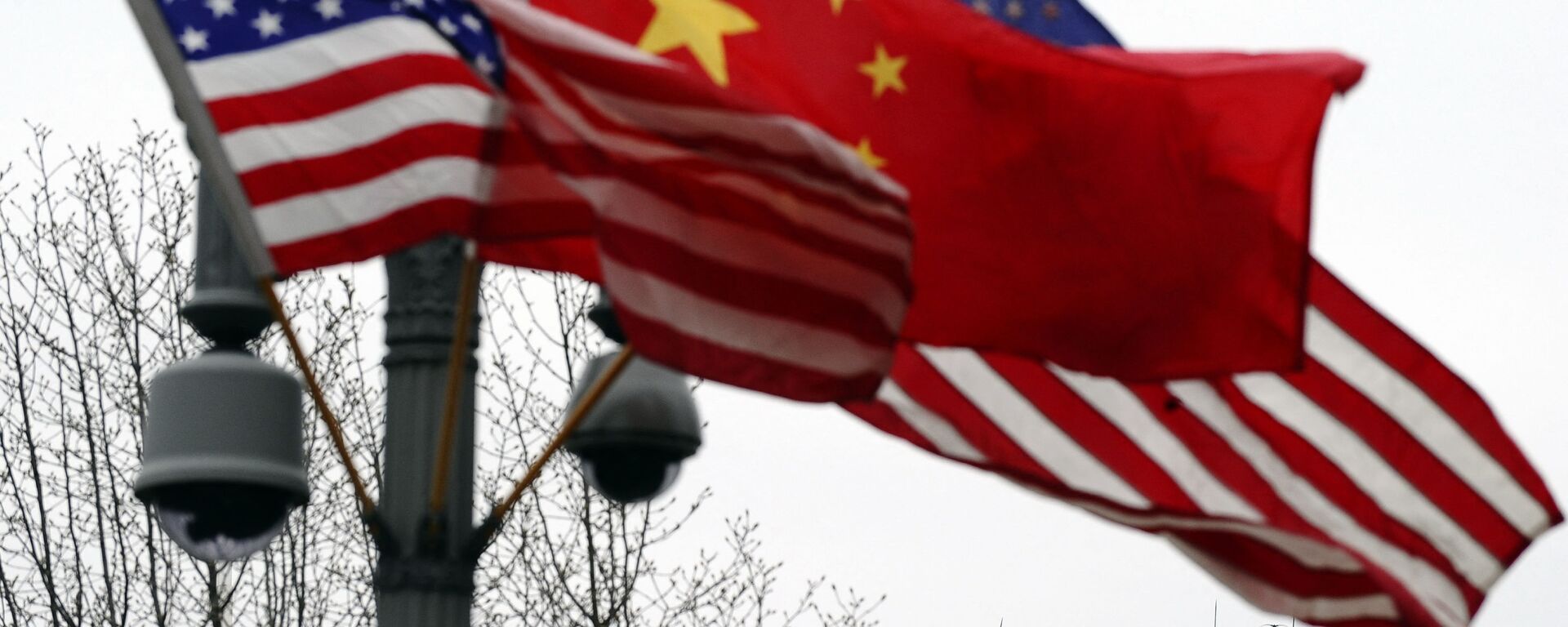Japan's Proposed Export Curbs Will Cause Big Impact, Undermine Global Supply Chain - Official

© AP Photo / Ng Han Guan
Subscribe
Japan's proposed export curbs on corresponding technologies and products will significantly affect the normal trade between Chinese and Japanese companies, undermining the stability of the global supply chain, a spokesperson of China's Ministry of Commerce (MOFCOM) said on Monday.
The move by the Japanese side will "harm others without benefiting itself," the spokesperson said. The remarks were made in response to the Japanese government's proposed export controls on four technologies related to semiconductors or quantum computing, Reuters reported on Monday.
Japan proposed last week to require companies to notify the government before exporting advanced materials and equipment that could be used for military applications, Reuters reported, citing Nikkei. Semiconductors are a highly globalized industry that, after decades of development, has formed an interdependent industrial structure. This structure is the result of market forces and the choices of enterprises, the spokesperson said.
Recently, some countries have frequently broadened the concept of national security and abused export control measures, artificially dividing the global semiconductor market - this seriously deviates from the principles of free trade and multilateral trade rules, severely impacting the stability of global industrial and supply chains, the spokesperson noted.
For some time now, certain countries have frequently sought to broaden the concept of national security, abusing export control measures to artificially divide the global semiconductor market. Such moves seriously deviated from the principles of free trade and multilateral trade rules, and severely affected the stability of global industrial and supply chains, the MOFCOM spokesperson said.
There are intensified attempts by the Japanese government seeking "decoupling" or "de-risking" from China, citing so-called supply chains risks. Semiconductor sector has been a focus of such politically driven attempts.
There are intensified attempts by the Japanese government seeking "decoupling" or "de-risking" from China, citing so-called supply chains risks. Semiconductor sector has been a focus of such politically driven attempts.
The moves by the Japanese government on export controls is clearly a case of mutual coordination with the US in the semiconductor chip field, aimed at implementing Japanese Prime Minister Fumio Kishida's Economic Security Promotion Act, Xiang Haoyu, a research fellow at the China Institute of International Studies, told the Global Times on Monday.
The main purpose of such moves is to maintain their competitive advantage in cutting-edge technology and strategic industries and to cooperate with the US to curb China's industrial rise and technological progress, the expert said.
Japan's moves on tightening export controls in semiconductor-related sector has been evident. On May 23, 2023, the Japanese government announced the inclusion of 23 items in the export control list. China's MOFCOM said at that time that the move was an abuse of export control measures and a serious departure from free trade and international economic and trade rules.
Despite this, Japan's exports, focusing on high-end areas such as semiconductor materials and equipment, have not been completely cut off to China; instead, they have increased driven by market demand.
In 2023, China imported $10.3 billion of semiconductor manufacturing equipment from Japan, a year-on-year increase of 9 percent, ranking first with a 30-percent share in total imports, according to media reports.
Despite this, Japan's exports, focusing on high-end areas such as semiconductor materials and equipment, have not been completely cut off to China; instead, they have increased driven by market demand.
In 2023, China imported $10.3 billion of semiconductor manufacturing equipment from Japan, a year-on-year increase of 9 percent, ranking first with a 30-percent share in total imports, according to media reports.
Meanwhile, US pressure remains a significant factor for Japan. Xiang said that Japan is more representing the interests of the US on this issue, making Japan somewhat like a "puppet" of the US.
Japan is not "innocent" either. The Kishida government, driven by political motivation, sees China's industrial upgrade as "a potential threat to its economic interests," and actively "decouples and de-risks" from China, even though it may harm its own interests, Xiang said.
Japan is not "innocent" either. The Kishida government, driven by political motivation, sees China's industrial upgrade as "a potential threat to its economic interests," and actively "decouples and de-risks" from China, even though it may harm its own interests, Xiang said.
This article was originally published by Global Times.







